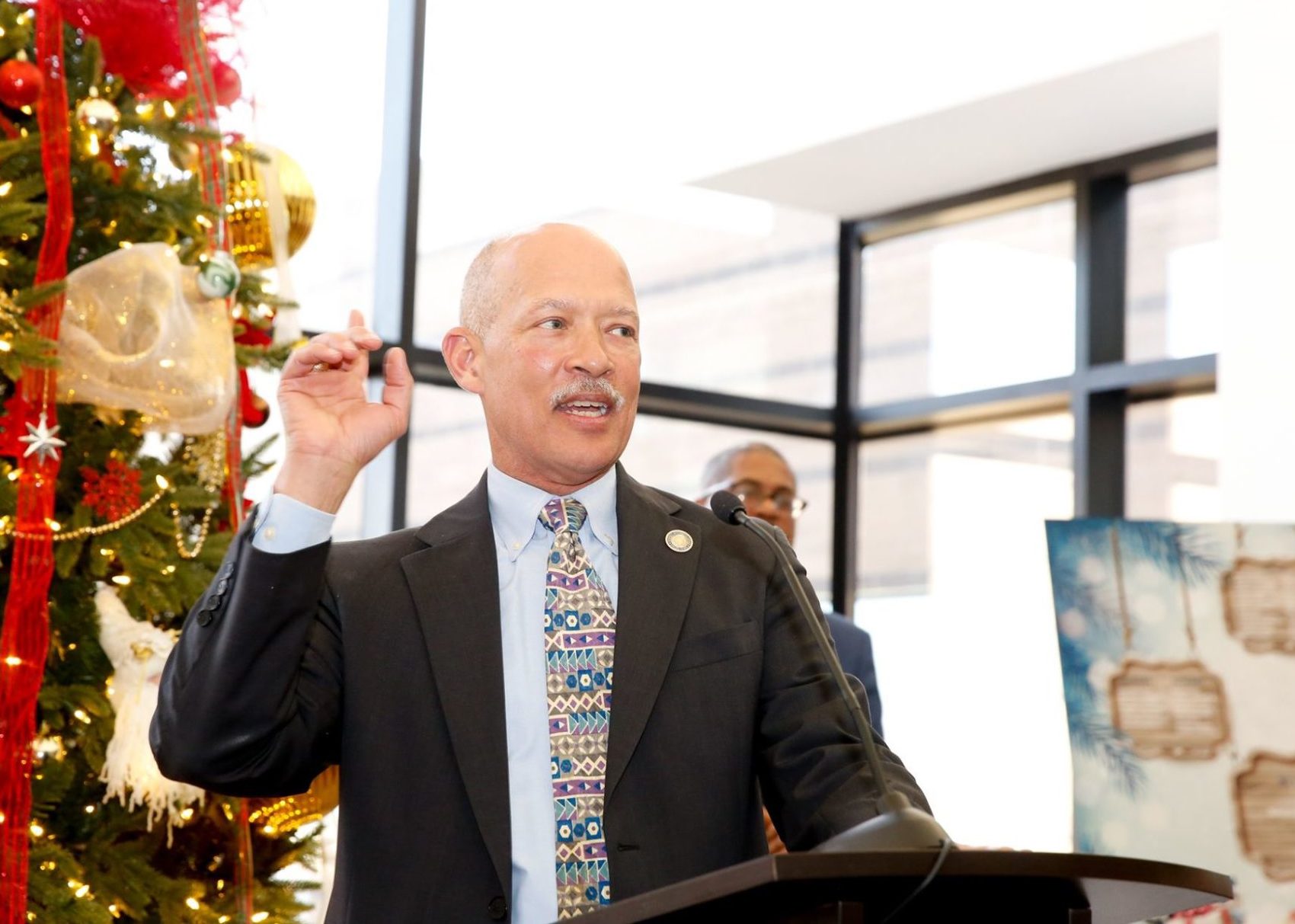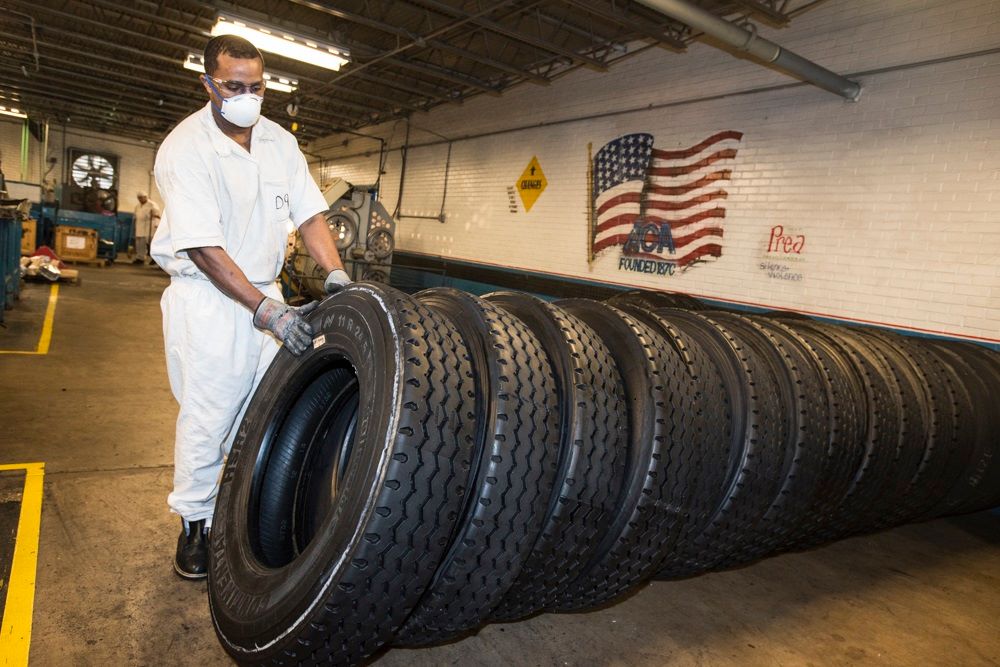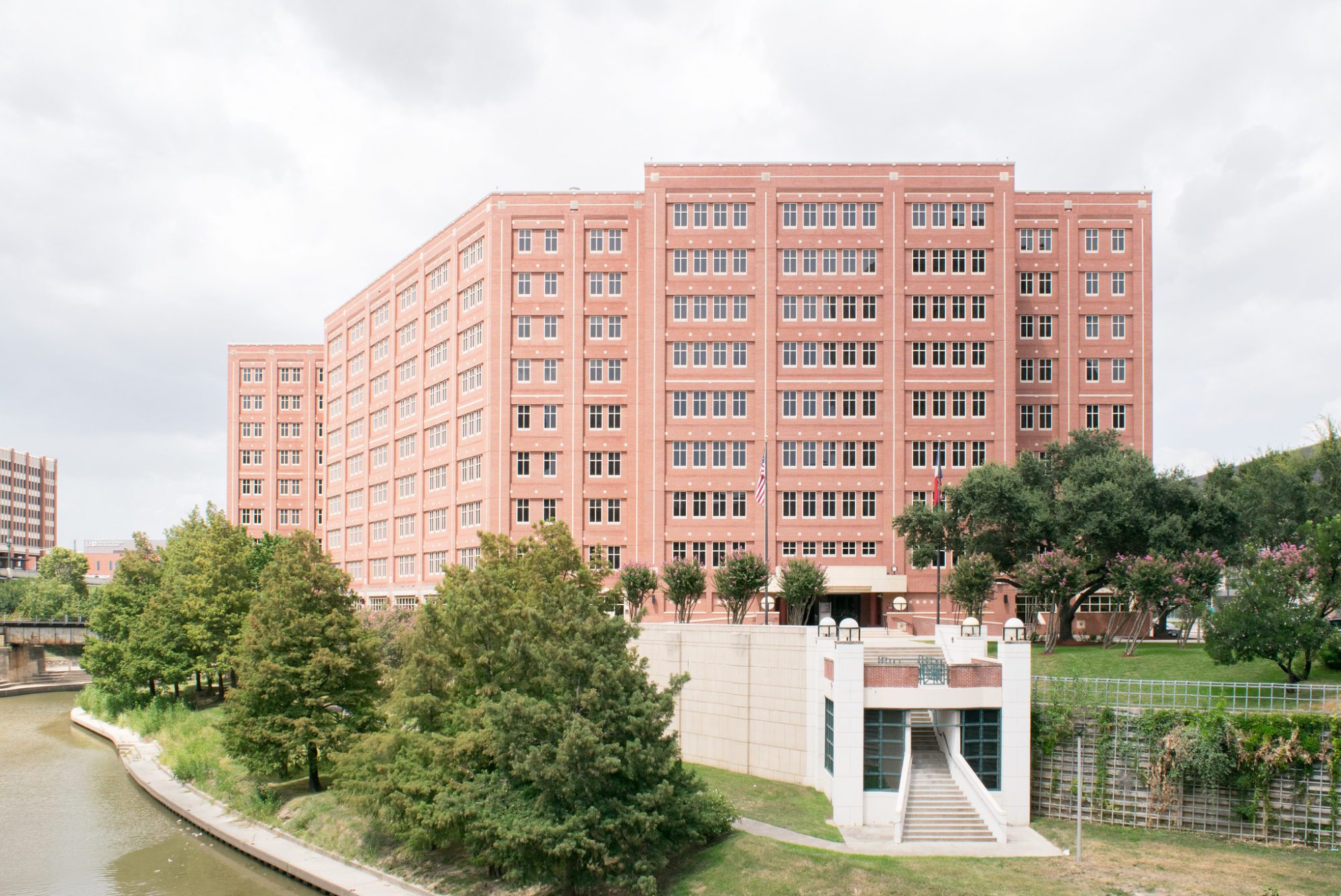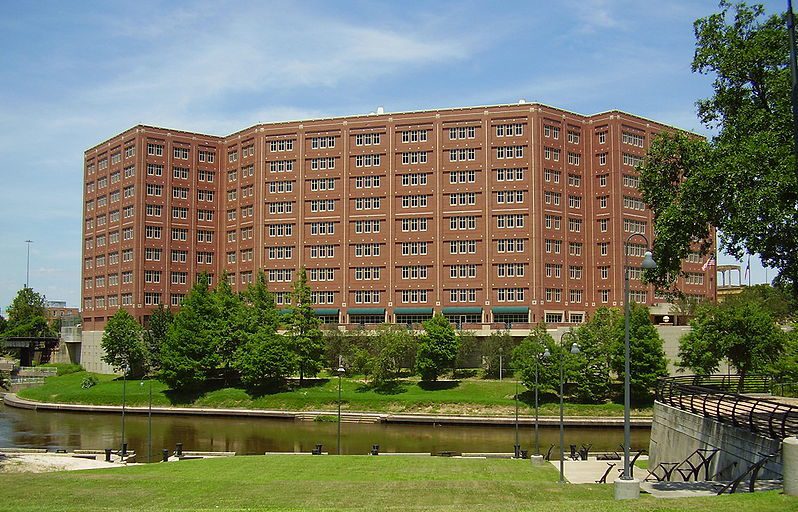As Election Nears, Dallas Politicians Have Few Answers for Their Jail Crisis
Continued dangerous conditions in the Dallas jail signal limits to DA John Creuzot’s reforms, but also the obstacles to change in a state with many officials hostile to decarceration.
| October 7, 2022

For years, Mason McCormick thought he might never leave the Dallas County jail. His partner, Tammy Hinton, says that McCormick tried “to stay in good spirits,” but that grew increasingly difficult as he approached year four of being incarcerated for drug charges inside a facility that is not designed or staffed to hold people long-term. At the height of the pandemic, Hinton spent every day waiting for McCormick’s call just to know he was still alive.
“The uncertainty can make you start to wonder if anyone really cares if you live or die,” said McCormick, who was finally transferred to a federal facility in early October. “It takes a toll on you financially, because phone calls every day aren’t cheap, but mostly it takes a toll on your mind.”
Degrading conditions have long plagued Dallas County Jail but have been exacerbated by both the pandemic and a dangerously high population. As a result, people like McCormick have been stuck in carceral purgatory while a backlog of felony cases grinds its way through the courts. Advocates and people inside the jail say the situation has only worsened in recent years, and the state agrees: The jail failed multiple state inspections in 2021 and 2022, and after an incarcerated person died inside the jail earlier this year, a state review revealed that officers weren’t conducting the required rounds.
As of this writing, more than 1,350 of the roughly 6,200 people incarcerated inside the jail are either waiting for transfer to a mental health facility or are pretrial detainees whose charges have not yet been filed. Another roughly 2,400 people are awaiting their day in court and are legally innocent. The average length of stay for people who enter the Dallas jail is now 46 days, up from 15 days in 2018. During that time, the city has fought multiple lawsuits: one against the county alleging its bail practices violate the rights of poor and vulnerable people; and another against the sheriff’s office alleging the jail’s current conditions and COVID-19 protocols put its occupants at further risk.
This slow and bloated legal system persists in Dallas County despite a district attorney voted into office four years ago on a reform platform that promised to “end” mass incarceration. John Creuzot vowed to try and divert people from jail, including by simply refusing to charge people for certain low-level crimes that often stem from homelessness and drug addiction.
Now running for re-election, Creuzot is sticking to a similar script, pitching himself as a Democrat and reformer. He faces the same Republican opponent as in 2018, former DA Faith Johnson, though her tough-on-crime rhetoric has only grown as the Texas GOP slides further right.
In the intervening years, Creuzot has acted on some of his promises, but Dallas’ jail population is at a six-year peak—and those who get locked up spend even more time behind bars. This record may indicate the limits of Creuzot’s reforms, but also the complexity of upending the court system in a red state like Texas, where power is divided between a plethora of public officials, many of them actively hostile to decarceration.
“The incarceration issue is impacting thousands of individuals in such a harsh way, from loss of job and family to loss of housing,” said Jill Curtis, an organizer with Faith in Texas, a racial, economic and social justice organization that raises money to post bail for incarcerated people. “There hasn’t been a focused effort at the city or county level to reduce this population in Dallas, and the way we see it, it’s at crisis level.”
Sheriffs are ultimately responsible for jail conditions in Texas, and judges are often the final arbiter of whether to detain someone and how to set bail. But prosecutors do get to decide whether to pursue criminal charges and can request certain bail amounts or conditions for pretrial release, says Nick Hudson, a policy strategist with the ACLU of Texas.
“The DA can reduce the backlog by cutting down on prosecutions, particularly for minor offenses,” Hudson told Bolts. But, he added, “It is going to take everyone working together to reduce the backlog in felony cases. Judges, prosecutors and the defense need a plan to ensure all defendants get access to speedy resolution of their cases.”
Curtis compared the official response to the longstanding jail problems to the Spider-Man meme wherein each iteration of Spidey points fingers at someone else. “The answer we always get is, ‘I’m not an expert,’” she said. “No one is an expert in the jail: Not the sheriff, not the DA, not the county judge. No one.”
“It’s time for real criminal justice reform in Dallas County,” Creuzot said in 2018 when he won the DA race over Johnson, the sitting DA who had been appointed by Governor Greg Abbott after the previously elected Republican prosecutor resigned. (After her loss, Abbott appointed Johnson to the board governing the state’s deeply dysfunctional prison system.)
During that campaign, Johnson trumpeted her record of convicting a local cop with murder for killing a teenager. But local reform groups rallied behind Creuzot, a one-time local judge who had pushed for programs to divert people charged with drugs into treatment instead of jail, making Dallas a key battleground in the growing movement to elect reform-minded prosecutors.
After entering the DA’s office, Creuzot pushed for multiple police reforms; his office says he played a role in the negotiations over a new law requiring cops to keep their body cameras turned on during the entirety of an investigation. He has pressed police brutality cases against local officers, drawing hostility from police unions.
Creuzot also announced early in his term that he would no longer prosecute most first-time charges for marijuana possession, that he would reduce bail requests, and that he would decline the prosecution of crimes related to poverty and addiction, such as theft of items under $750 stolen out of personal necessity.
His reforms echoed similar policies championed by reform-minded DAs elected in San Antonio and Austin, and Creuzot quickly earned favor with some local organizers. “It was a good first set of policies,” David Villalobos of the grassroots political group Texas Organizing Project told The Atlantic in 2019.
But his announcements also came under heavy fire from the state’s GOP leaders like Abbott and from law enforcement unions. Texas Republicans passed a new bail law last year that is likely to increase pretrial detention.
Despite Republicans’ pushback, data shows that change has come in fits and starts.
After Creuzot’s marijuana announcement in 2019, pot arrests dropped quickly. Police referrals to the DA’s office declined by roughly one-third between 2018 to 2019, according to research from Southern Methodist University, though the racial disparity in those arrests actually increased. The Dallas police adopted a more formal policy of making fewer marijuana arrests in 2021. Creuzot is also declining most marijuana cases sent to his office; data shared by the office shows that his office dismissed 54 percent of arrests over marijuana possession last year.
Arrests over petty theft have also decreased substantially since 2018, some of it a product of the pandemic, but data provided by Creuzot’s office show the DA is still prosecuting nearly all cases referred by the police. For instance, in 2021 Dallas police filed 1,087 class B theft charges (theft valued between $100 and $750), a drop from roughly 2,900 cases in 2018, the year before Creuzot came into, and roughly 1,800 in 2020. Creuzot says it rejected just 50 of the cases over those two years, and prosecuted the remaining 98 percent.
Creuzot still has support from many reformers, though some activists and organizers say they’re frustrated he hasn’t done more to curb mass incarceration in Dallas.
Curtis, her fellow Faith in Texas organizer Joe Swanson, and other advocates interviewed for this story have urged Creuzot to build a more comprehensive decarceration plan. They want him to refuse prosecution of non-violent offenses and dismiss cases for non-violent offenders currently in jail.
“It can’t just be marijuana. It has to be systemic change: a full-on reversal of what we’ve been doing,” Curtis said. She added that it’s, “very Dallas, and very Texas” to oppose reforms past a certain point (though, as seen with Creuzot’s policies regarding marijuana and theft, police and GOP leaders are quick to oppose any kind of reform).
Creuzot told Bolts in an interview that he is planning such a diversion program for some felony charges, although he didn’t say when it might be implemented .
“We are in the beginning stages of felony pretrial diversion for first-time, low-level offenders,” he said. His office implemented a similar effort for people arrested a second time for misdemeanor marijuana possession. “Once it’s fully up and running,” Creuzot says of the felony diversion program, “we expect many offenders will have a short period of monitoring and the case will be dismissed. Those cases will be eligible for expunction.”
This change would also lead to fewer people ending up in jail for probation violations. There are currently more than 250 people detained there over such violations, but Creuzot says the numbers used to be considerably higher and that he has made progress on this front, too.
“Contrary to many decades of practice, this office no longer alleges violations of probation terms and conditions that do not impact public safety,” he said, adding that his office does not seek to bring people back to jail for failing to perform community service, for instance.
When asked if his goals have changed since the 2018 race, Creuzot said they have not. But “circumstances beyond my control have changed,” he added. “For example, the state mental hospital is backed up, causing people in need of restoration of competency services to wait two years for a bed. Or, if the charge is a misdemeanor and either 180 days or one year has passed and no bed is available, we must dismiss the case. These individuals will be released just as ill as when they arrived.”
Ultimately, that increases the chance they’ll be back in the Dallas County Jail.
Creuzot’s win over a Republican DA in 2018 underscored a long trend in Dallas, which has grown a deeper shade of blue over the past two decades. Running for re-election this year, Creuzot has staked his campaign in opposition to Republican policies, stating he would resist the criminalization of pregnancies and trans youth.
Johnson seemed to distance herself from the GOP label during her 2018 run, but this year she has largely echoed her party’s criticisms of criminal justice reforms and tough-on-crime talking points. She says that, if elected, she will prosecute the petty theft charges Creuzot has occasionally dismissed. Johnson also blames Creuzot for the rise of murders in the city this year, and faults his decision to forego the death penalty in several high-profile murder cases. While Johnson has mentioned the high jail population in campaign mailers, she has spent much of the campaign pushing policies that would invariably put more people behind bars.
The county’s commissioners court, which has a Democratic majority, has said that if the jail grows further, the county will send incarcerated people elsewhere. The Harris County jail in Houston, another hazardous and overcrowded Texas facility, recently sent some of its population to Louisiana.
“They’re not disposing of enough cases,” JJ Koch, the only Republican member on the county’s Commissioners Court, told a Dallas TV station in reference to local judges. In recent months, Koch has floated the idea of cutting judges’ pay as a way to incentivize more movement on the county’s backlog of felony cases. He also said the backlog in trials has meant that prosecutors have been offering fewer plea deals, which resolve the majority of criminal cases.
Koch is running for re-election to the commissioners court in November against a Creuzot ally, attorney Andy Sommerman. In an interview with Bolts, Sommerman rejected criticisms that Creuzot hasn’t done enough to reduce the jail population.
“He is hamstrung to some extent by the statutory requirements of bail,” Sommerman said. “And if we could have a system more similar to New Jersey, where people are incarcerated not on their ability to pay but on their risk to society, then we’d see the actual reform Dallas needs.”
Civil rights advocates have fought for years to force changes to the bail system in Dallas, as they have in Houston and other Texas cities. In 2018, the ACLU of Texas and Civil Rights Corps sued Dallas County judges, magistrates who set bail, and the county sheriff on behalf of several people detained at the jail, arguing that the county’s bail practices regularly violated people’s constitutional rights. A district court judge agreed and ordered county officials to consider a defendant’s ability to pay when setting bail. But earlier this year, the Fifth Circuit Court of Appeals vacated the lower court’s ruling over procedural issues.
Meanwhile, people like McCormick wait a long time—sometimes years—inside an overwhelmed system. McCormick himself was detained pretrial in the jail for over a year before entering a guilty plea, and then remained in the jail for more than two years before being transferred to a federal prison this week.
He was in the Dallas jail as the pandemic spread, and he himself contracted COVID-19. He was also in the jail during the ice storm that devastated the Texas power grid in 2021 and led to a days-long power outage at the lockup. He cannot vote in the November election, but he says he has learned plenty about how incarcerated people are treated and worries about the effect these long years have had on him.
“It’s stress every day like you wouldn’t believe,” he says. “There’s nothing worse than waiting for answers that don’t come.”




